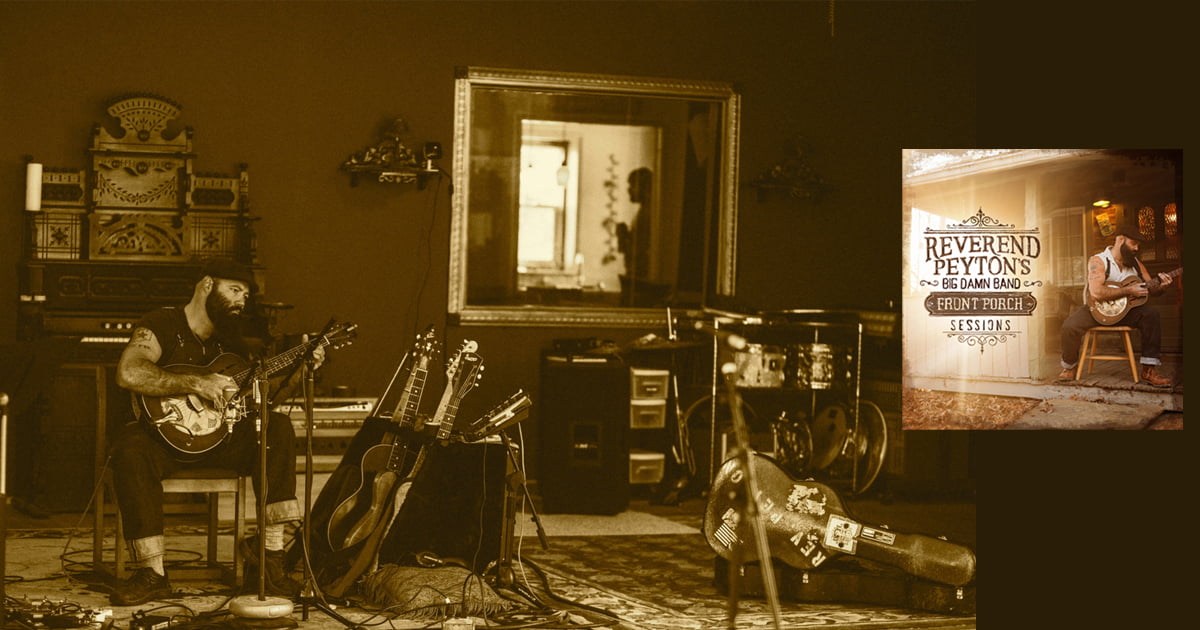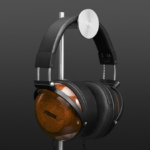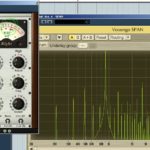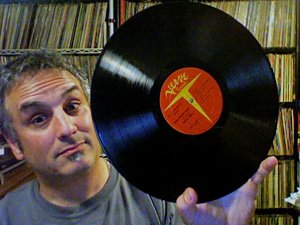It’s the time of year for saving money!
When I first heard about Reverend Peyton and his Big Damn Band, I wasn’t entirely ready to dive in and review it for you folks, Dear Readers..
I mean… I liked their prior album So Delicious a bunch, especially the punk-country-blues-flavored, in-your-face single “Raise a Little Hell.” But circumstance being what it was at the time — and the limited info I had at my fingertips — I admit I sort of let it slide away until I had a bigger story to tell you about. Accordingly, and in testament to my piqued curiosity, his initial CD remained on my desk “in box” to revisit in the future, while many others had been filed away…
As chance happens, my concert-going, music-collecting DJ buddy Frank got to see Reverend Peyton perform in Key West where he was vacationing and was subsequently raving about the show on social media.
I thought to myself : ‘Hey, that’s that guy on that CD right there on my desk! Cool!’
And then… as these sort of things seem to go … I received yet another new CD from the good Reverend and company called The Front Porch Sessions. Popping it on while driving to the gym one day, I was taken aback as here was a new recording of vintage acoustic country blues recorded in what sounded like an old church or school house…
I mean… you can almost feel the wood grain resonance…
As it turned out, I was partially right: The Front Porch Sessions were recorded in an old church that had been converted into a studio!
Here is some detail on the space, the apt-named “Farm Fresh Studios,” from their bio on Reverbnation: “Converted from an 80+ year old former church, the studio features a LARGE 1500 sq. ft live tracking room with oak floors, and four isolation rooms. Recording rooms are complemented by a large control room, editing bay, shop, guest room/lounge, office, and a spacious kitchen.”
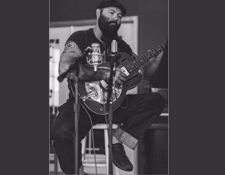 And there in lies the reason many of you good folks, Dear Readers of Audiophilereview.com, might well want to check out this recording: it has room ambiance and living presence for days… and for those of you who like to hear natural sounding recordings, this may be just the thing for you. Add to it that the music is also pretty dang great, this album may be a nice demo disc for some of you who like to show off your system’s potential.
And there in lies the reason many of you good folks, Dear Readers of Audiophilereview.com, might well want to check out this recording: it has room ambiance and living presence for days… and for those of you who like to hear natural sounding recordings, this may be just the thing for you. Add to it that the music is also pretty dang great, this album may be a nice demo disc for some of you who like to show off your system’s potential.
In that regard, The Front Porch Sessions sound pretty huge!
I requested a copy of the vinyl version of the album and am happy to report that it sounds even better, with a richness hinted at on the CD.
You may be wondering as was I — and I did inquire — about the analog vs digital nature of the recording. It turns out that this album is a “hybrid” … a process of which I am intimately familiar.
Now, while I’m not exactly sure as to which specific hybrid approach the producers took to record The Front Porch Sessions, I do know that combining analog and digital recording techniques is an increasingly popular approach these days, a best of all worlds scenario which can lead to a fine sounding modern recording.
For my personal example, on our last CD, my old band — we were called “ing” — recorded the basic tracks (drums, bass, rhythm guitars) at the legendary Plant Studios (in Sausalito, California) on two-inch analog tape (with simultaneous safety tracking in 96 kHz / 24-bit resolution HD digital). Vocals, additional guitars and effects overdubs were done at a smaller studio digitally (to make the most of our budget but also due to scheduling conflicts at The Plant — after all, this was the same room where albums like Fleetwood Mac’s Rumors and Stevie Wonder’s Songs in the Key of Life were cut, so it was still an in demand facility at the time). Final mix down was then done back at The Plant, using the computer only as a playback medium for the digital tracks, all of which got fed individually through through their fine mixing board, taking advantage of the outboard processing there to capture ‘the sound of radio,’ as our engineer put it at the time. We didn’t mix “in the box” — and by that I am referring to when all the processing of the mix is done within the confines of the computer, relying on (and potentially being limited by) the internal processing power of that particular device. We mixed the digital tracks — including the analog captured basic tracks — back through the board and down onto half-inch analog tape.
Thus, a hybrid digital/analog master resulted. And it sounds wonderful (and, as a side note: I do hope to release a full HD and vinyl reissue in the near future for posterity)
Anyhow, getting back to the good Reverend and company now that you hopefully understand what I’m talking about here, my guess is that at minimum they mixed their digital basics down to analog tape to make a warmer sounding master recording, but I would not be surprised if they took an approach similar to how my old band did it. It makes a big difference in the sound of the final recording.
They apparently used a lot of vintage microphones to make The Front Porch Sessions (and probably a fair amount of vintage processors and amps too), capturing the sound of the group interacting with the old church structure. The result is in the final sound which feels fresh and clean yet also like it might have been recorded 50 years ago.
If I have any criticism of this album is that it is perhaps a wee bit too ambient on the Reverend’s amazing lead vocals — some of the lyrics might have been made more distinct by having a hair less ambiance in the mix. But really, that is a minor nit as the recording does capture the roof raising splendor of Reverend Peyton’s big booming bluesy voice — he sounds like a guy who you would trust to watch over your child yet someone you wouldn’t want to anger if you bumped into him on backwoods trail or in some dark small town back alley after a night of serious drinking.
So… there you have it, audiophiles. A great sounding modern acoustic blues country album with fine songs and plenty of heartfelt spirit to spin on your turntables. It is always encouraging to me when I see that the traditions of acoustic blues music are indeed alive and well for a new generation to discover. Perhaps Revered Peyton and his Big Damn Band will be the ones to get younger listeners to put their hand on the big book of rock ‘n roll ‘n rhythm ‘n blues ‘n country and say “I believe.”
No doubt, I’m a believer …
(note: all photos by Tyler Zoller, courtesy of Reverend Peyton)
